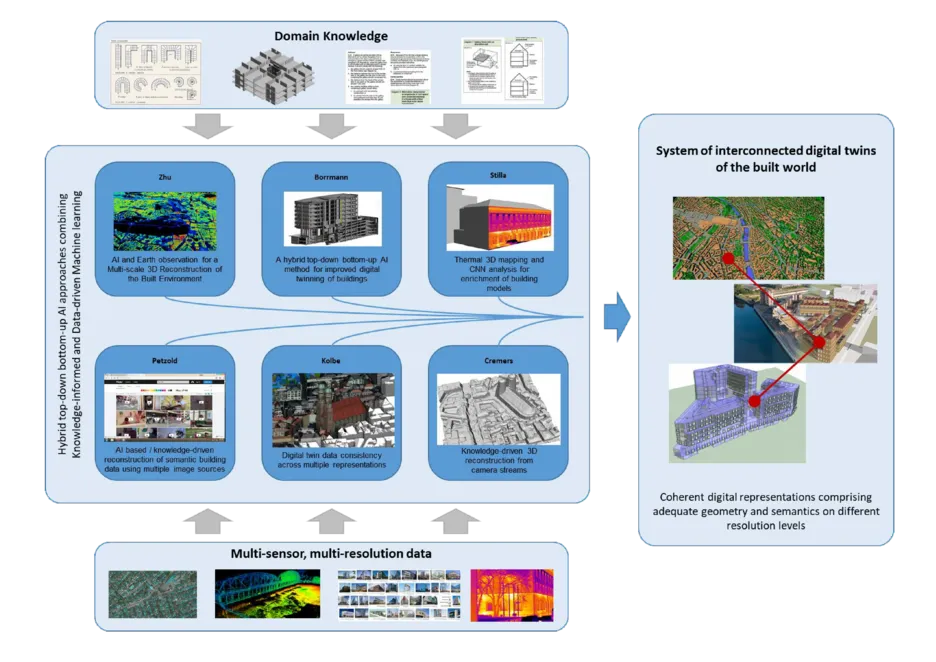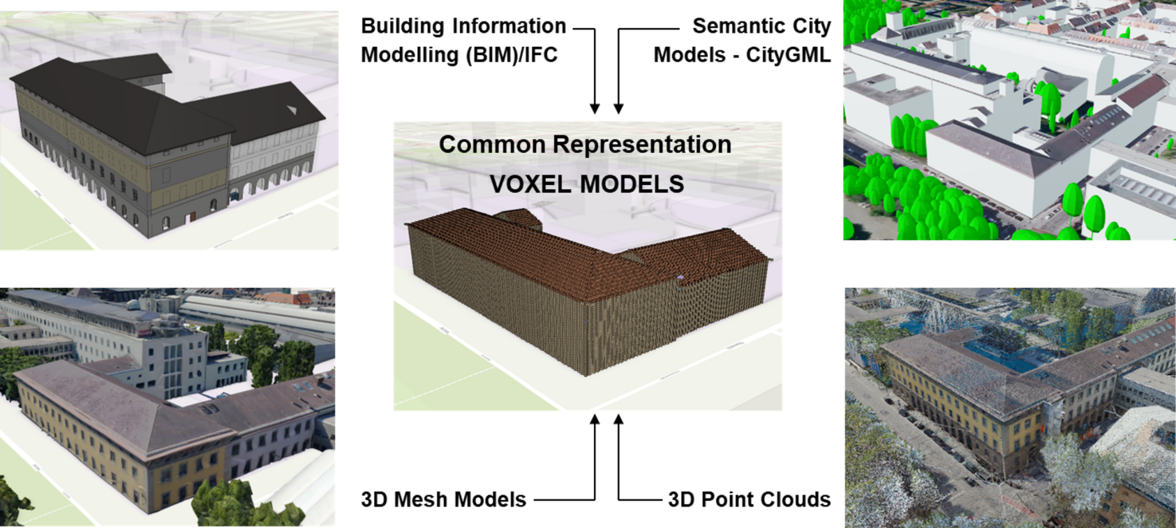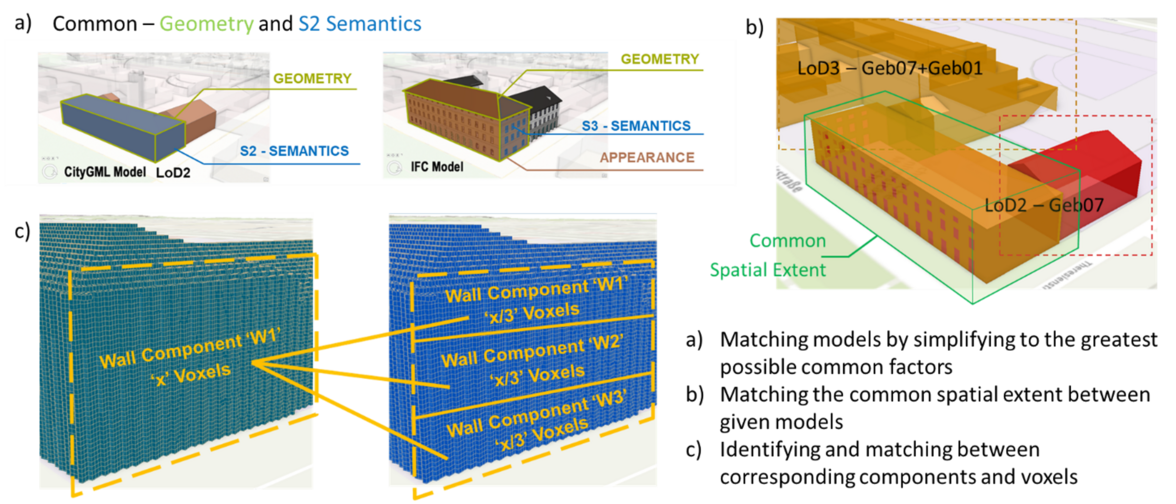AI4TWINNING
AI4TWINNING stands for the project ‘Artificial Intelligence for the automated creation of multi-scale digital twins of the built environment’. The goal of the project is to create a system of interlinked twins across different scales, providing the opportunity to seamlessly integrate city, district and building models as well as to keep these up-to-date and consistent. This project is being jointly undertaken by 6 chairs at TUM - Chair of Computer Vision and Artificial Intelligence, Chair of Geoinformatics, Chair of Computer Simulation and Modelling, Chair of Architectural Informatics, Chair of Photogrammetry and Remote Sensing, Chair of Data Science and Earth Observation.

Project Description
Sub-project of the Chair of Geoinformatics: Digital twin data consistency across multiple representations
The goal of the sub-project is to develop objective measures to assess the level of consistency between various 3D representation types when compared against each other. Consistency measures are required to
- enable AI/ML algorithms to learn to reconstruct and segment building objects according to semantic modelling standards,
- assess the changes over time,
- allow information flow between 3D representations across spatial and temporal scales.
This is achieved by
- identifying a common representation type that can flexibly accommodate variation in geometry, semantics, levels of detail, and spatial extents, i.e. ‘Volumetric Pixels’ or ‘Voxels’, so that a match can be established,
- developing an ontology for matching the various model representations in terms of semantic level of classification, spatial extent, and component-voxel match.
Project period
2021 - 2025
Contact Person
Project Leader
Project Contributors
Project Funding
- TUM GNI - TUM Georg Nemetschek Institute Artificial Intelligence for the Built World
Project Partners
- TUM Chair of Computational Modelling and Simulation (Prof. André Borrmann)
- TUM Chair of Photogrammetry and Remote Sensing (Prof. Uwe Stilla)
- TUM Chair of Architectural Informatics (Prof. Frank Petzold)
- TUM Chair of Data Science in Earth Observation (Prof. Xiaoxiang Zhu)
- TUM Chair of Computer Vision (Prof. Daniel Cremers)

